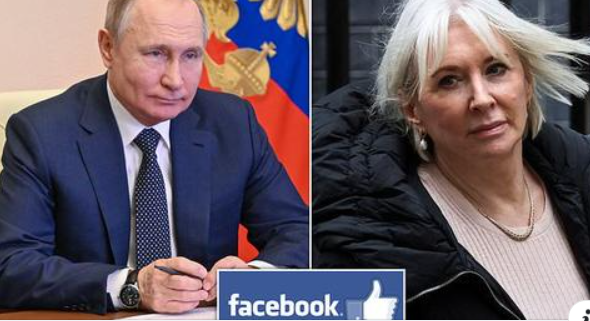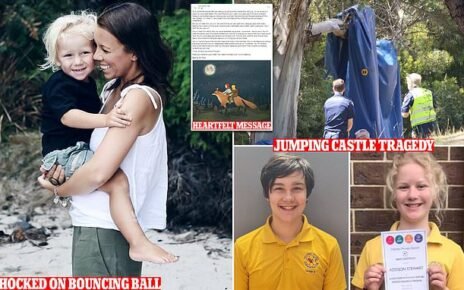Russian President Vladimir Putin has blocked Facebook for ‘discrimination towards Russian media’ – after the social media giant banned Russia Today (RT) and Sputnik in the UK at the request of the British government.
Russia’s media regulator Roskomnadzor announced on Friday, a week after Moscow invaded Ukraine, that Facebook would be banned, citing ’26 instances of discrimination toward Russian media’.
Earlier on Friday Facebook’s parent company Meta announced that RT and Sputnik would be barred from Facebook and Instagram in the UK, three days after the sites were banned across Europe.
The latest big-tech clampdown on Moscow’s propaganda machine came at the request of the British Culture Secretary Nadine Dorries who wrote to Meta, Twitter and TikTok on Thursday to request the ban.
Ms Dorries said in her letter that Russia’s President Putin should not be allowed to ‘exploit our open and free media to spread damaging propaganda into Britain’ and described his invasion of Ukraine as ‘intolerable’.
‘I want to urge you to do everything you can to apply the approach you are taking across the EU to block access both to RT and to Sputnik’s online output on your UK services,’ she wrote in a letter seen by Sky News.
The change means RT and Sputnik’s pages are not visible on Facebook, Instagram or YouTube’s pages in the EU or UK.
Elsewhere, Russia’s media regulator Roskomnadzor ‘restricted access’ to social media network Twitter after blocking Facebook in the country, Russian news agencies reported on Friday.
According to Interfax and RIA Novosti news agencies, access to Twitter was restricted on the basis of a request of the Prosecutor General from February 24.
An AFP journalist reported that Twitter was no longer refreshing its feed in Russia.
Earlier today, Russian lawmakers backed legislation that would impose harsh jail terms and fines for publishing ‘fake news’.
Russia’s lower house said in a statement that if fake news stories ‘led to serious consequences, (the legislation) threatens imprisonment of up to 15 years’.
Amendments were also passed to fine or jail people calling for sanctions against Russia.
The BBC, which has a large bureau in Moscow and runs a Russian-language news website, reacted by announcing a halt of its operations in Russia.
‘This legislation appears to criminalise the process of independent journalism,’ BBC Director-General Tim Davie said in a statement.
He warned that journalists could face ‘the risk of criminal prosecution simply for doing their jobs’.



